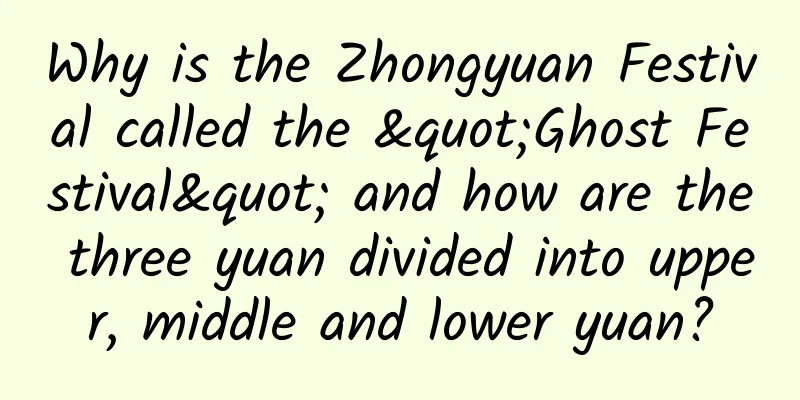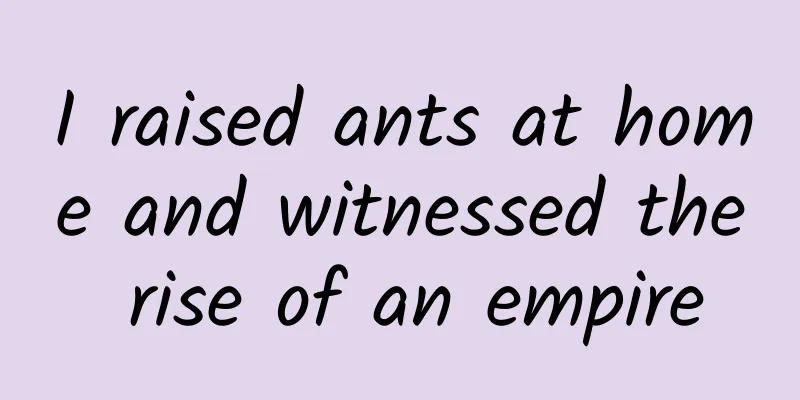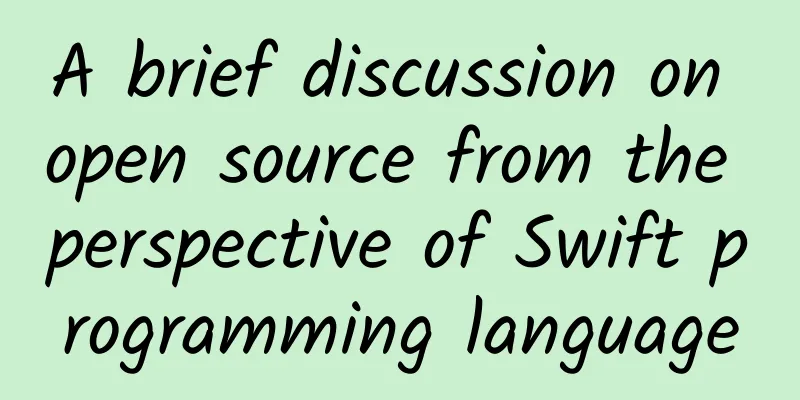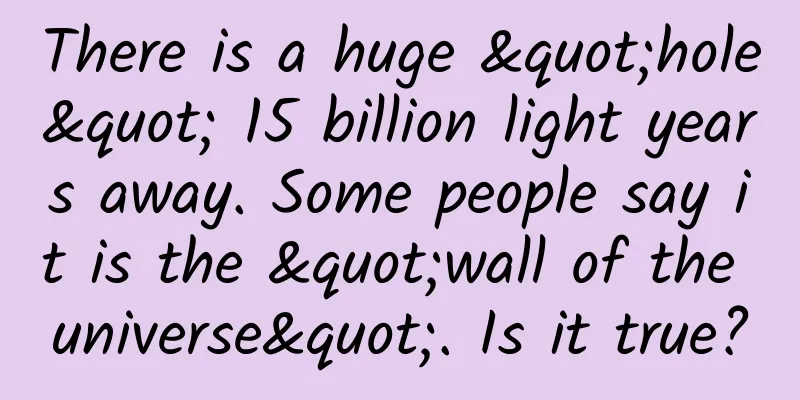Why is the Zhongyuan Festival called the "Ghost Festival" and how are the three yuan divided into upper, middle and lower yuan?

|
This article is about 4160 words Reading time: 11 min Today is the Ghost Festival, a day that the Chinese people attach great importance to. People will hold many grand ceremonies of general salvation and worship. Among the traditional Chinese festivals, the Zhongyuan Festival, Shangyuan Festival and Xiayuan Festival together form the "Three Yuan Festivals". The term "Three Yuan" comes from ancient Taoism. In Taoism, the Heavenly Official, the Earthly Official and the Water Official are collectively called the "Three Officials". They are the representatives of the Emperor of Heaven stationed on earth. On the "Three Yuan Days", they review the merits and sins of the human world for the Emperor of Heaven to determine rewards and punishments: "The Heavenly Official bestows blessings on the Shangyuan Festival on the 15th day of the first lunar month, the Earthly Official pardons sins on the Zhongyuan Festival on the 15th day of the seventh lunar month, and the Water Official relieves disasters on the Xiayuan Festival on the 15th day of the tenth lunar month." Among them, the Zhongyuan Festival is the most special. The focus of the Earth Official's inspection is on ghosts, so there is a legend among the people that the underworld opens its doors to release ghosts on July 15 (in some places, it is July 14, such as Guangdong). The Zhongyuan Festival gradually has the meaning of "Ghost Festival". Coincidentally, the Buddhist "Yulanpen Festival" for the salvation of the dead is also on this day, so July 15 has become the most yin festival of the year. So, do you know how China’s upper, middle and lower divisions are divided? Statue of the Three Officials. Source/Internet The Origin and Development of Sanyuan Festival The Sanyuan Festival existed as early as the Han Dynasty. Let’s first talk about the Lantern Festival, which is the Lantern Festival when every family eats rice dumplings together. The main god worshipped by the court of the Han Dynasty was the Heavenly Emperor "Taiyi". In the earliest unearthed creation myth "Taiyi gave birth to water", Taiyi was the creator god, "the heaven and earth were born by Taiyi". Emperor Wu of the Han Dynasty built the Taiyi Temple Altar in Ganquan Palace, and sacrificed to "Taiyi" in Ganquan Palace on the first night of the first lunar month every year, which was regarded by later generations as a precursor to the sacrifice to the gods on the fifteenth day of the first lunar month. The emperor's sacrificial activities must be grand. On the fifteenth day of the first lunar month every year, starting from dusk, Ganquan Palace would hold sacrifices with grand lights all night long. In addition, there were often shooting stars passing over the altar at night, and thus the custom of hanging lanterns and decorations on the fifteenth day of the first lunar month was formed. The Lantern Festival truly became a folk festival after Buddhist culture was introduced to the Eastern Han Dynasty. Since Emperor Ming of Han was a devout Buddhist, he listened to the advice of Cai Yin and ordered that "lanterns be burned to honor Buddha" in the palace on the fifteenth night of the first lunar month every year. From then on, the people followed suit and lit lanterns to worship the Buddha. As for the staple food of Lantern Festival, "tangyuan", it has to wait until the Song Dynasty. On the Lantern Festival, people in the Song Dynasty used to eat food called "yuanzi", which later evolved into today's tangyuan. Lantern Festival. Source: A clip from the TV series "The Longest Day in Chang'an" Let's talk about the Zhongyuan Festival. It originated from the natural beliefs of ancient China, and the rituals of the emperor offering sacrifices to heaven, earth and water. "Yili. Audience" records: "Offer sacrifices to heaven by burning firewood, offer sacrifices to mountains and hills by raising them, offer sacrifices to rivers by sinking them, and offer sacrifices to the earth by burying them." Late summer and early autumn are the days before harvest, so people offer sacrifices to the gods of the fields on this day, thank Mother Earth for her gifts, and pray for a good harvest in the coming year. The Book of Rites, Chapter on Monthly Ordinances, says: "In this month (July), farmers harvest the crops. The emperor tastes the new crops and first offers them to the ancestral temple." During the harvest season, the emperor also symbolically offered new crops to the ancestral temple to express his respect for his ancestors. Later, the activities of ancestral worship in late summer and early autumn spread from the emperor to the princes, and from the princes to the people. At first, the date of the sacrifice was uncertain, but later it was gradually fixed around July 15, which is usually the first full moon day after the beginning of autumn, when the new autumn air is at its peak. Finally, let's talk about the Lower Yuan Festival. It is the birthday of the Taoist "Water Official Emperor Jie'er Yanggu Emperor". This day is the annual work report day for the Water Official. He must report to the Heavenly Court based on his investigation of the human world and help people solve their problems. Taoist temples hold Taoist ceremonies, while the people offer sacrifices to the dead and pray to the Lower Yuan Water Official to solve their problems, which is called "Thank you for peace". Even the Heavenly Court is helping people solve their problems, so the human court must follow suit, so the court has regulations to ban slaughter and postpone the execution date of the death penalty. Zhang Weibang's "Xiayuan Lingyou Tu" from the Qing Dynasty depicts the Xiayuan Water Official Fusang Emperor traveling on a dragon chariot. Source/Internet Taoism calls heaven, earth and water "Three Elements", which comes from Volume 56 of "Yunji Qijian": "After the separation of chaos, there were the three elements of heaven, earth and water, which gave rise to human relations and nourished all things." According to the book Sui Shi Za Ji by Lü Yuanming of the Northern Song Dynasty, the Five Pecks of Rice Sect, an important Taoist sect in the late Han Dynasty, believed that the Heavenly Official bestowed blessings, the Earthly Official pardoned sins, and the Water Official relieved disasters, and that the Three Yuans matched the Three Officials. The Taoists of the Wei and Jin Dynasties matched the "Three Officials" with the time and seasons, saying that the Heavenly Official of the Upper Yuan was born on the 15th day of the first lunar month, the Earthly Official of the Middle Yuan was born on the 15th day of the seventh lunar month, and the Water Official of the Lower Yuan was born on the 15th day of the tenth lunar month. As a result, temples and halls of the Three Officials were built in various places, and the custom of the Three Yuan Festival spread among the people from then on. The Cultural Core of the Ghost Festival The Zhongyuan Festival is clearly a festival to worship the god of the land, so how did it later become the "Ghost Festival"? On the day of Zhongyuan Festival, the emperor would not only thank Mother Earth for her gifts, but also go to the ancestral temple to pay respect to her ancestors. This is because China has a tradition of respecting the dead and remembering their ancestors, and treating the dead as if they were alive. As early as the Zhou Dynasty, ancestor worship activities had already become a custom. In Chinese culture, deceased ancestors simply mean another form of existence of the deceased. "Han Shi Wai Chuan" records: "Ghost means return." "The Book of Rites: Sacrifice" wrote: "All living things must die and return to the earth after death. This is called ghost. Bones and flesh die below, and the yin becomes wild earth. Its energy radiates above and becomes bright." Ghosts are just the return of life. Return does not mean the end, but a return to the silence and undercurrent before life existed. The ancients also believed that the human body is the gathering of Yin Qi, while the human spirit is the rhythm of Yang Qi. The body is called "po" (such as the word "body"), and the spirit is called "hun". The soul is Yang, and the spirit is Yin. When the soul is separated from the gloomy and heavy smelly skin (po), it will naturally become sunny and vigorous. The "yin soul" is actually the "yang soul". Therefore, based on religious instinct, the Chinese have long begun to "deify" the dead and use them as objects of worship. Therefore, the living can communicate with the dead and pray for blessings. They believe that the dead can still live in the home, so they have to set up a spirit tablet; they can also live in the tomb, so they have to choose a good place; they can also live in the underworld, so they have to burn things. In order to show respect to the dead, they have created many rituals and generous gifts to make the dead soul feel at ease and to protect their descendants. They also believe that sacrifice and prayer can combine filial piety with religious beliefs, so the ancestral spirit tablets with religious significance are placed together with other gods. Not only can they be seen morning and night, but they also exist to share good and bad fortune, and become a place to pray for difficulties and problems in life. Confucianism emphasizes that filial piety is the foundation of human relations, and its specific manifestation is to respect one's parents and ancestors, and respect for deceased relatives is shown in sacrifices. Therefore, Confucianism attaches great importance to "filial piety in life and sacrifice in death". Therefore, there is the so-called "serve the living with courtesy, bury the dead with courtesy, and sacrifice to the deceased with courtesy", which shows that ancestor worship is an integral part of filial piety and has strong ethical, social and religious values. And "treat the dead as if they were alive, and treat the deceased as if they were alive, this is the ultimate filial piety", which has a deep ethical meaning of not forgetting one's roots. In short, in Chinese culture, ancestor worship is an external form of tracing one's origins and demonstrating one's awareness of the nature and value of life. It aims to teach people to understand the principles of honesty, trust, loyalty, respect, loving others as oneself, treating the dead as if they were alive, and other human emotions. Therefore, the cultural core of the Ghost Festival is to respect ancestors and be filial. However, since ghosts are transformed from humans, there is no "spiritual" gap between ghosts and humans. This heterogeneous yet isomorphic characteristic makes ghosts in folk literature not only have human emotions and desires, but also have human shortcomings such as greed, meanness, and laziness. This influenced the Chinese to later easily accept the concept of evil ghosts in the underworld of Taoism and hell of Buddhism, laying the ideological foundation for the Zhongyuan Festival to become the "Ghost Festival". The Ghost Festival turns into the Ghost Festival The Daoist Canon states: "On the day of the Zhongyuan Festival, the Earth Official selects people and distinguishes good from evil... He recites this sutra day and night, and the great saints of the ten directions chant the spiritual chapter together. Prisoners and hungry ghosts are liberated at that moment." In order to combine the idea of salvation with the Zhongyuan Festival, Taoism specially invited the Confucian saint Emperor Shun to be the Zhongyuan Earth Official and the Great Emperor of Forgiveness. According to historical records, Shun was the eighth-generation grandson of the Yellow Emperor. After his mother died, his father remarried and his stepmother gave birth to a son, Xiang. His whole family disliked him and plotted to kill him, but he managed to escape many times and returned evil with virtue, still being filial to his biological father and stepmother. Later, Shun farmed in Mount Li, fished in Lei Ze, and made pottery by the river. People followed him, and his filial deeds gradually became famous throughout the world. When he was thirty years old, Emperor Yao married his two daughters to Shun and abdicated the throne to him. Because Taoism turned Shun into a great Taoist god and Shun was extremely filial to his parents, the Zhongyuan Festival is also called the "Filial Son Festival." During the Zhongyuan Festival, the most common ritual to commemorate ancestors is to burn paper money. It is said that Cai Lun of the Eastern Han Dynasty invented papermaking, which brought him a lot of money. Seeing this, his brother and sister-in-law were eager to make money and imitated him to make paper. However, due to their eagerness for quick success, the paper was of poor quality and no one was interested in it. Cai Lun's sister-in-law came up with a plan. She slept in a coffin, made her family cry to death, and burned the unsold paper at the same time. After she was ready, she suddenly woke up from the coffin when the neighbors came to comfort her. She said that she had been tortured in the underworld, but later her family burned paper for her. The paper became paper money in the underworld, so she was spared from torture and redeemed her life and returned to the world of the living. Word spread from one person to ten, and from ten to a hundred. People all knew that burning paper for the dead could give them money in the underworld, so that they could wear warm clothes and eat enough. On the surface, this is a successful business marketing case, but it contains an important Taoist concept: when a person is born, he borrows money, and when he dies, his relatives have to pay it back. As for the fact that the money burned is paper money, it is obviously something that happened after the invention of papermaking. Later, Buddhism was introduced and the Yulan Festival was integrated with the Zhongyuan Festival. Legend has it that the Yulan Festival was born because of "Mulian saving his mother". There are many versions of the story, and the most popular one is probably this one: After Maudgalyayana gained supernatural powers, he saw that his mother was suffering in the realm of hungry ghosts because of the bad things she had done in her life. In order to save his mother, he turned to the Buddha for help. The Buddha taught him to recite the "Yulan Sutra". "Yulan" means hanging upside down, which can save his mother from the pain of hanging upside down. As long as he recites this sutra, all the gods from all directions will come to save his mother together. Illustration from the 19th century Mongolian illustrated edition of "Mulian Saves His Mother". Source/Internet When his mother was rescued from the gates of hell, all the ghosts came out with her. Therefore, he had to chant mantras and transform the offerings into food so that the hungry ghosts could have a full meal and go back in peace. Buddhism brought the Indian concept of hell to China through the Zhongyuan Festival, and turned money into merit, transforming it into something to give to ancestors through rituals. Taoism later also performed similar rituals, wearing Buddhist hats, chanting mantras (Sanskrit), and making hand seals. Buddhism and Taoism influenced each other and it was difficult to distinguish them clearly. With the development of history, the Zhongyuan Festival has become a festival created by combining elements of Confucianism, Buddhism and Taoism. It is a typical example of the integration of the three religions in the Middle Ages. Every part of the world has its own "Ghost Festival" to commemorate ancestors. Source: A clip from the movie "Coco" It is for this reason that people gradually call the Zhongyuan Festival, a festival for ancestor worship, the "Ghost Festival." These folk beliefs have been gradually forgotten by modern people with the development of science and technology. Putting aside the folk legends of ghosts and gods, we can return to the original intention of the Zhongyuan Festival - to remember our ancestors, to express our thoughts for our deceased relatives on this day, and to pass on the original "benevolence and filial piety" from generation to generation. References: 1. Lu Pengzhi, "Mixed Buddhist and Taoist Rituals in Medieval China: A New Exploration into the Origin of the Taoist Zhongyuan Festival" 2. Zhang Jiange, "A Study on the Evolution of the Folk Customs of the Zhongyuan Festival during the Tang and Song Dynasties" 3. He Chunyan and Wang Chenna, "Analysis on the Evolution of Zhongyuan Festival" 4. Lu Yuanming's "Miscellaneous Notes on the Seasons" 5. Chen Lai, Ancient Religion and Ethics: The Roots of Confucianism 6. Ju Longhui, "A Study on Oracle-Bone Inscriptions and the Worship of Gods in the Shang Dynasty" END Author: Bai Zhou Editor: Zhan Qianhui Proofreader: Qiu Sha Layout: Xue Mengyuan |
<<: Will tap water be contaminated after heavy rain and floods?
>>: Shanxi, China's real devil dialect area
Recommend
How long does it usually take for a submitted Baidu Smart Mini Program to be reviewed and approved?
Q: How long does it take to review a Baidu Mini P...
Taiye Hand-painted Employment Improvement Class will end in January 2021 [HD quality with materials]
Taiye Hand-painted Employment Improvement Class w...
APP UI design trends: moving for good design
Pleasing animation has become a must for an app, ...
How long will it take to remove the credit blacklist?
How is the credit blacklist generated? In daily l...
How to implement community operation strategy?
As we all know, the traffic dividend of the curre...
Wang Lishi's "Nutrition helps you lose weight easily" 21-day diet plan + training weight loss method
Fitness and weight loss video tutorial lecture int...
Cut the meat! Who did the big companies get rid of in 2015?
[[161006]] At first, it was a popular commodity t...
The official pictures of the final version of the Wrangler will be released in February 2017
According to foreign media reports, Jeep is about...
Aiti Tribe Stories (34): Self-cultivation of a full-stack engineer
[51CTO.com original article] Shi Yafeng is a full...
Former App Store executive reveals seven truths about "Apple Recommendations"
"As long as my game is good enough, it will ...
Low cost, high exposure, advertising optimization model!
How to optimize the effectiveness of advertising,...
How much can AI help you fill in your college entrance examination application form? Just a supplement!
□ Zhang Gailun, a reporter from Science Times The...
Behind the rapid development of AI big models, is sustainable development achieved through “green computing”?
Currently, artificial intelligence (AI) has been ...
WeChat for Windows 3.3.5 official version released: group chat @ everyone, various details optimized
On August 8, the WeChat team recently released th...
Is wild Cordyceps suitable for women?
As you know, many nutrients are not suitable for ...









